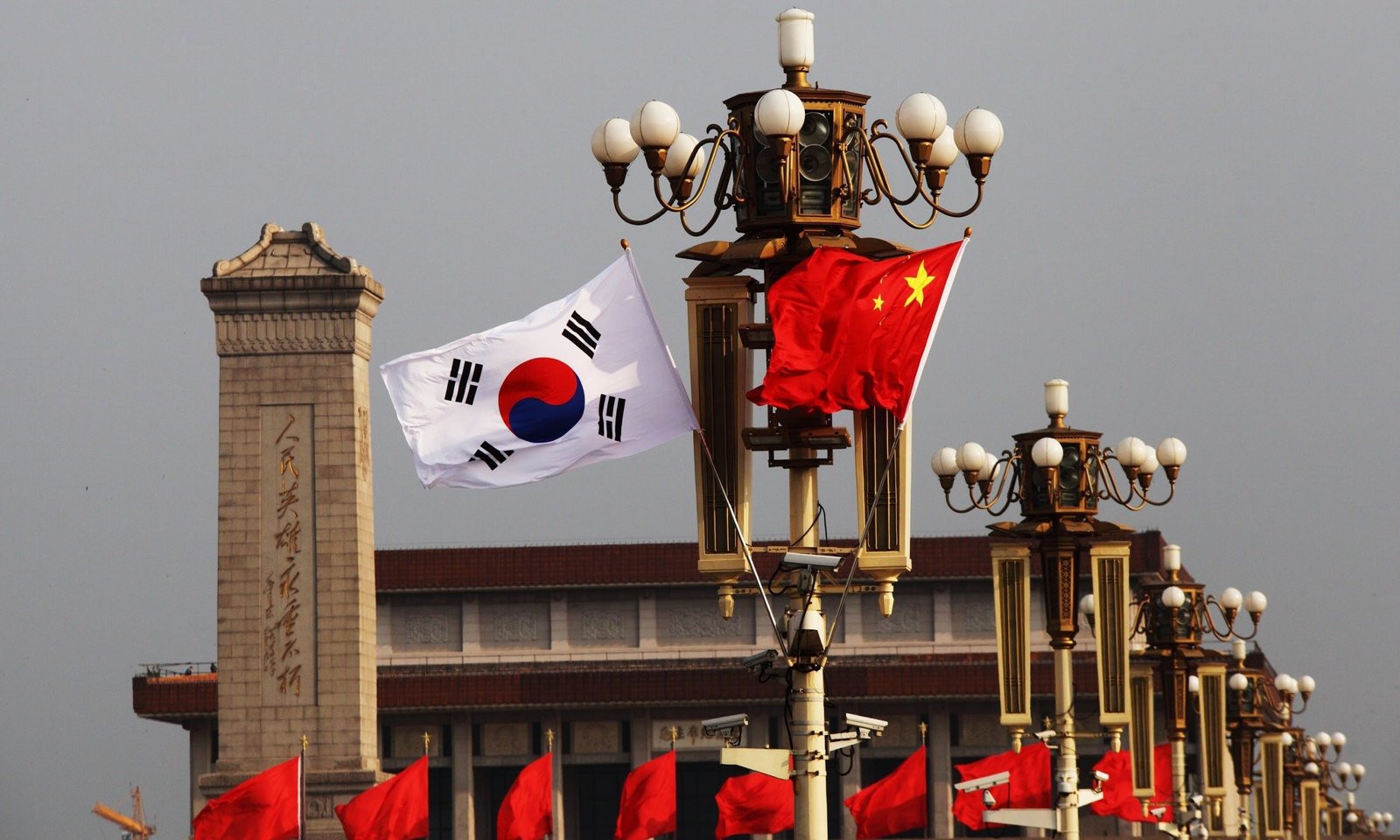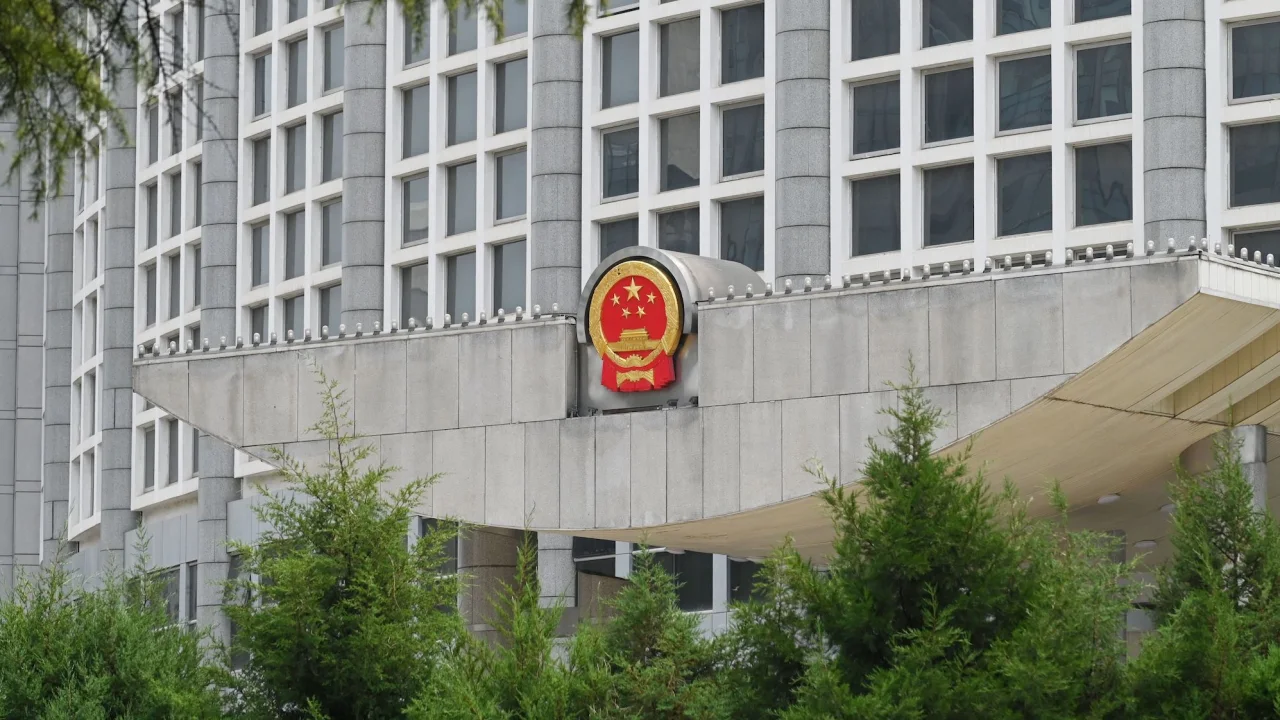William Yang
Efforts to resume diplomatic engagement between South Korea, Japan and China, including announcement of a possible visit to Seoul by Chinese leader Xi Jinping and an agreement to resume a trilateral leaders’ summit, reflect China’s attempt to counter Washington’s curbs on the export of advanced technologies, analysts told VOA last week.
It also shows Seoul and Tokyo’s desires to restart conversation over contentious issues with Beijing, they said.
“The real catalyst for the restart of talks [among the three countries] at the vice minister-level last week comes from the Chinese side,” Daniel Russel, former U.S. assistant secretary of state for East Asian and Pacific Affairs in the Obama administration, told VOA by phone.
He says that in his view, China’s efforts to reduce tension with South Korea and Japan are driven by Beijing’s concerns over warming ties between Seoul and Tokyo, the two countries’ strengthened trilateral relationship with the U.S., and the economic slowdown that China has experienced since the start of the year.
“One of the trends that the Chinese see and are alarmed by is the closer alignment of Japan and South Korea with the U.S. and Europeans in reducing China’s access to cutting-edge technologies,” Russel said. “The Chinese want to do whatever they can to discourage South Korea from following the U.S. in putting any additional curbs on semiconductor exports to China.”
However, other observers say the motivation to restart diplomatic engagement comes from South Korea.
“The South Koreans are motivated by the fact that China is a big neighbor and it’s a huge market for them,” Dennis Wilder, a former China analyst with the CIA, told VOA by phone.
He said he believes that the agreement to resume the trilateral leaders’ summit is a natural next step for Seoul and Tokyo after they improved bilateral relations and significantly advanced their partnership with the U.S.
“What South Korea and Japan want to do is to stabilize their relationship with Beijing and keep economic ties with China strong without having to concede anything on the strategic side,” Wilder said.
During his meeting with South Korean Prime Minister Han Duck-soo in the Chinese city of Hangzhou Sept. 23, Xi said he would seriously consider visiting South Korea, which would be his first visit to Seoul since 2014 if it happens.
Bloomberg News has since reported that South Korean President Yoon Suk Yeol’s office is working to arrange a visit.
Despite his commitment to enhance cooperation with the U.S. over the last year, some experts think Yoon is “much less of a China hawk than is widely perceived.”
“Yoon has always been willing to talk with China, provided that it could be done with an appropriate level of respect and without preconditions,” Joel Atkinson, an expert in East Asian affairs at the Hankuk University of Foreign Studies in South Korea, told VOA in a written response to questions.
He added that the more Xi Jinping is willing to compromise, such as being willing to visit Seoul before Yoon visits Beijing, the easier it will be for Yoon to participate in the trilateral leaders’ summit.
Exchange views on key issues
Apart from Xi’s potential Seoul visit, South Korea, Japan and China agreed to organize a summit for leaders from the three countries “as early as possible,” after deputy foreign ministers from the three countries met in Seoul on Tuesday.
During a daily press briefing on the same day, Chinese Foreign Ministry spokesperson Wang Wenbin said senior officials from the three countries held “in-depth discussions” on steadily resuming trilateral cooperation.
“The three parties agreed to hold a foreign ministers’ meeting in the coming months and maintain communication on holding a leaders’ meeting at the earliest opportunity convenient to all three countries,” he said.
Wilder said he believes that Seoul and Tokyo will want to learn about Beijing’s assessment of the North Korean government and its policies, including missile tests and nuclear advancement.
“They would also want to hear what the Chinese understand about the recent rapprochement between North Korea and Russia,” he told VOA.
In addition to sensitive geopolitical issues, the three countries will talk about economic ties, particularly the impact of Washington’s curbs on advanced semiconductor technologies.
“I imagine the Chinese would be eager to get assurances that South Korea and Japan aren’t going too far with those restrictions,” Wilder said.
As for Seoul and Tokyo, Wilder said he expects they would hope to get reassurance from Beijing about access to the Chinese markets for their businesses and the guarantee that business people from both countries would be treated fairly in China.
They would want Beijing to guarantee “that there won’t be arbitrary detentions as we have seen in recent months,” he said.
A move to unblock lines of communication
Because of the growing military threat from North Korea and China’s frequent military maneuvers around Taiwan, leaders from South Korea, Japan, and the United States strengthened the trilateral security partnership during a summit at Camp David, the U.S. presidential retreat, in August.
Beijing lodged complaints against the statement from the Camp David Summit, which criticized China’s aggressive behavior in the South China Sea. In April, Yoon’s claims that tensions near Taiwan were caused by attempts to change the status quo by force caused a diplomatic spat between Seoul and Beijing.
With tensions high between Beijing and the two major American allies in northeast Asia, Russel, who is now the vice president for international security and diplomacy at the Asia Society Policy Institute, said attempts by South Korea, Japan, and China to resume exchanges between leaders can prevent existing problems from being exacerbated.
“We are in a much more problematic, if not dangerous, circumstance in part because there has been virtually no real engagement,” he told VOA. “The trilateral summit could unblock lines of communication between Beijing, Seoul, and Tokyo, as well as potentially chipping away some of the persistent problems.”
Despite attempts to resume diplomatic exchanges with Beijing, Russel said he thinks these efforts will not compromise the security partnership among Seoul, Tokyo, and Washington.
“I’m sure the Japanese and Korean leaders will offer some reassurance to China that their alliance with the U.S. and the trilateral coordination among them is not a hostile act intended to contain, suppress, and subvert China,” he told VOA.
(Source: VOA)






